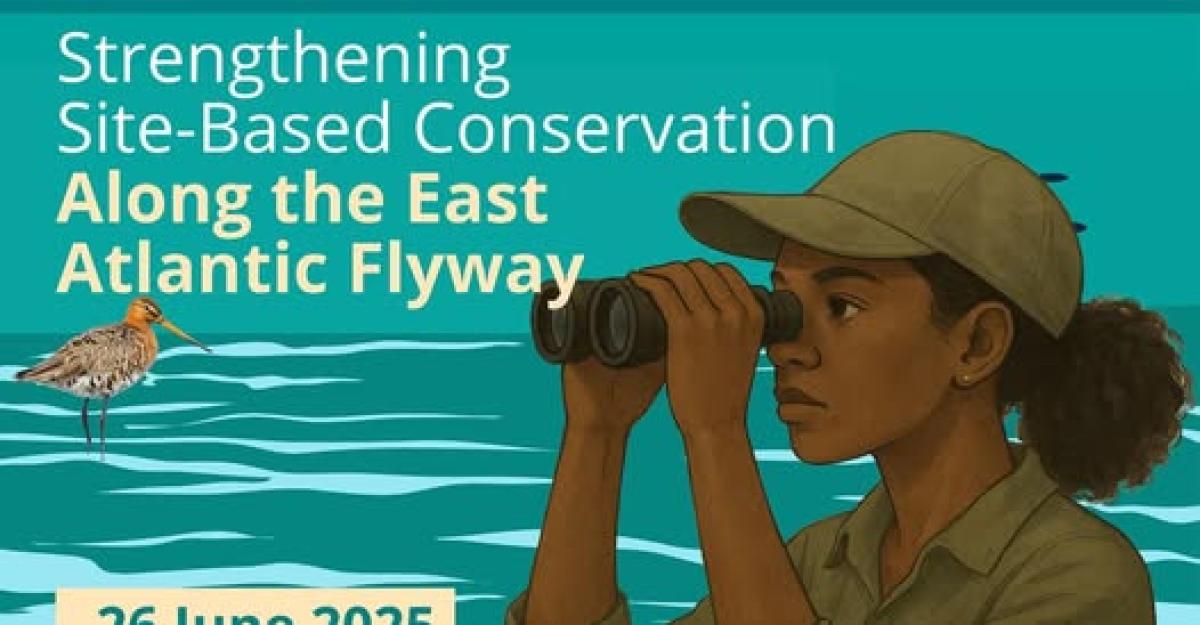Webinar: From Data to Action: Strengthening Site-Based Conservation Along the East Atlantic Flyway

With the clock ticking toward 2030 and the world racing to meet its biodiversity and climate commitments, new findings from across the East Atlantic Flyway are setting the stage for renewed action. In January 2023, one of the largest-ever coordinated bird counts was carried out across the flyway, covering more than 1,500 wetlands across 33 countries. From the icy reaches of the Arctic to the mangrove-rich coasts of West Africa, millions of birds were surveyed, providing crucial data on species trends, habitat pressures, and climate vulnerabilities.
These findings detailed in the East Atlantic Flyway Monitoring Assessment 2023 not only inform global conservation priorities but also serve as a wake-up call: while some species show signs of stability, many remain in decline, especially along the African Atlantic seaboard. Local pressures like wetland degradation, pollution, and unplanned development are compounding the risks already posed by climate change.
But the story doesn’t end with data. That’s where action begins. The EU-funded Technical Support Instrument (TSI) project, coordinated by the Common Wadden Sea Secretariat (CWSS), was launched to directly respond to these challenges. It has equipped partners and site managers with field-ready conservation tools that are already making a difference on the ground:
- Drone-assisted bird monitoring protocols
- Wetland mapping and remote sensing guides
- Participatory site planning tools for managers and communities
These innovations, developed with local input and tested in priority sites are now bridging the gap between science and action, helping turn early warnings into practical, site-based solutions.
They will be the focus of a global webinar on 26 June 2025, designed to connect science, policy, and practice.
“For over a decade, we’ve built one of the most collaborative flyway networks in the world. This webinar brings together the science, tools, and people behind some of the effort and shows how frontline conservation can shape global impact." Dr. Kristine Meise, Common Wadden Sea Secretariat/Wadden Sea Flyway Initiative
📅 Webinar Invitation
From Data to Action: Strengthening Site-Based Conservation Along the East Atlantic Flyway
🗓 Date: 26 June 2025
🕓 Time: 16:00–17:00 CEST
Registration link: https://zoom.us/webinar/register/WN_BZtau5mRTJ2WA85ZG9qg9A
By aligning science with implementation, the report is strengthening resilience for both people and nature. Wetlands are not just ecological hotspots , they are lifelines for food, livelihoods, cultural heritage, and climate security.
From the Saloum Delta in Senegal to Banc d’Arguin in Mauritania, and from the Bijagós Archipelago in Guinea-Bissau to Yawri Bay in Sierra Leone, partners are connecting efforts across continents to safeguard migratory birds and the communities who protect them.
Organized by:
The Common Wadden Sea Secretariat (CWSS), as part of the Climate Resilience East Atlantic Flyway (CREAF) project, funded by the International Climate Initiative (IKI) of the German government.
